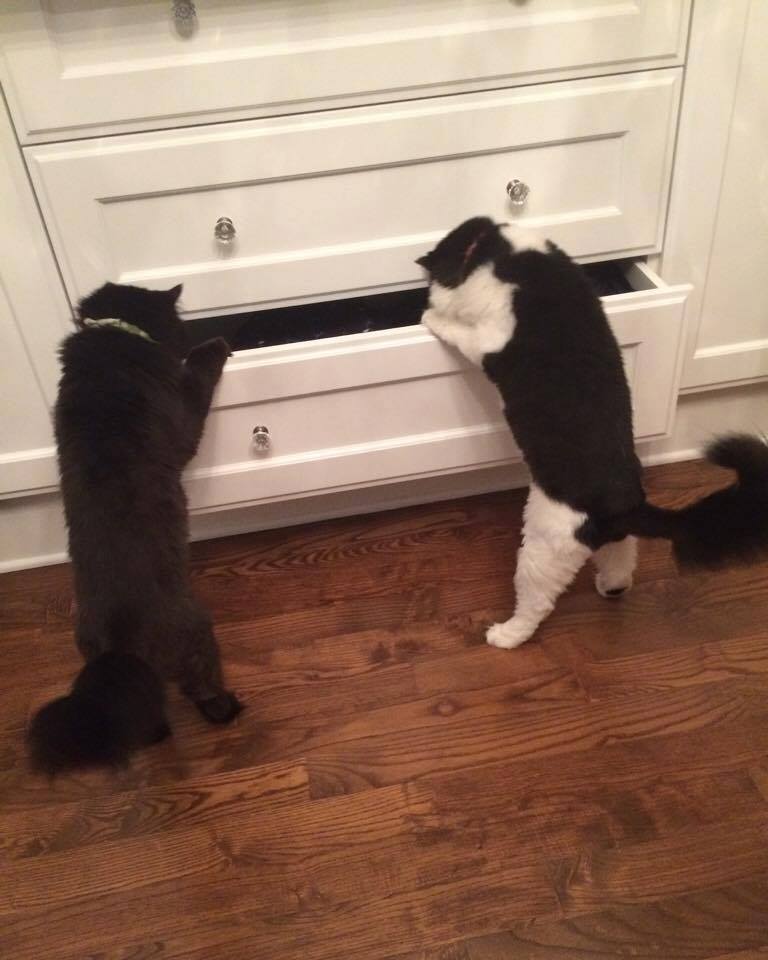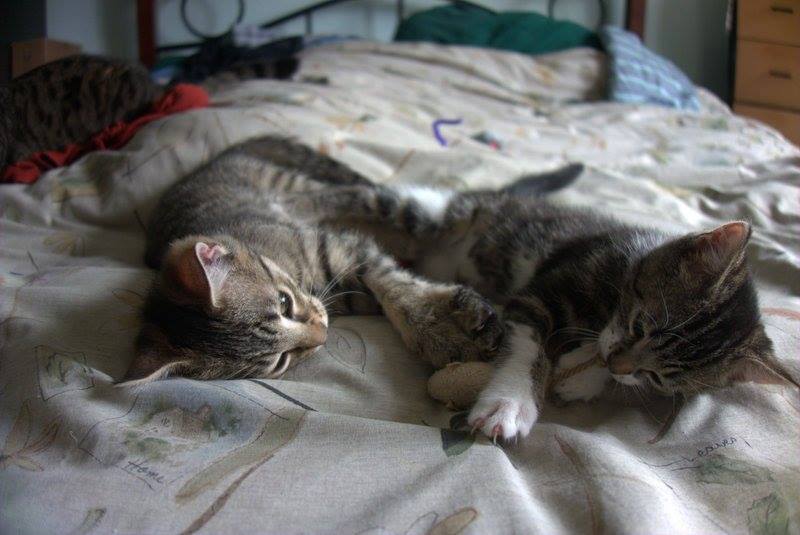
From catster.com
Today in News of the Obvious: FIV-positive cats can live with other uninfected cats and not transmit the virus. A veterinary study concludes this. Finally.
Purdue University’s College of Veterinary Medicine conducted a long-term study in cat shelters and drew two conclusions: FIV-positive cats can live with FIV-negative cats and not infect the FIV-negative cats during normal day-to-day interaction; and mother cats infected with FIV don’t pass the virus on to their kittens. The study was conducted by Dr. Annette L. Litster of the college’s Department of Veterinary Clinical Sciences.
Cat lovers and rescuers have known this for many years, and they’ve repeatedly crusaded to stop the superstitions about FIV that have led to who knows how many cats being needlessly killed in shelters.
Misguided beliefs about FIV-positive cats have also led to long stays — sometimes as long as the cat’s whole life — for the FIVers lucky enough to be placed in no-kill shelters. There is no need for FIV cats to be adopted only into homes with other FIV-positive cats; the disease is transmitted only by deep bite wounds, which happen only if the cats get into intense fights. Proper introductions and consideration of the individual cats’ personalities should go a long way to prevent such fights.
I know this from experience: When I was much younger, my family had a tomcat who developed FIV as a result of fighting for mates with other intact males. But he was never aggressive with his feline housemates. They shared food and water bowls, beds and sometimes even groomed one another. None of the other cats developed FIV; in fact, his best lady friend, Iris, lived to be 18 and she was very healthy right up until the end of her life.
The false belief that mother cats can pass FIV on to their kittens has probably resulted in thousands upon thousands of unnecessary euthanasias. Although the world certainly has many more cats than it needs, it’s a damn shame that so many otherwise adoptable kittens may have died as a result of these incorrect ideas.
Another problem: People often confuse FIV (the feline immunodeficiency virus) for FeLV (the feline leukemia virus), which is transmissible through cohabitation and casual contact. These two diseases are retroviruses and both affect the immune system. The difference? The feline immunodeficiency virus does not easily cross the mucous membranes (the lining of the mouth, nose, eyes, genitals, and intestines), which is why it’s so difficult for FIV to be transmitted to other cats.
There’s no need to fear FIV, and I’m delighted that we finally have an official veterinary study that confirms what a lot of us have known for decades. I hope to all things cute and furry that this knowledge spreads rapidly among shelters so they don’t unwittingly torpedo their FIVers’ chances of being adopted or, worse yet, kill them because of the fear that the disease will spread rapidly.
Thank you, Dr. Litster, for conducting this research and reporting on it: you’ve already started saving cats’ lives.
